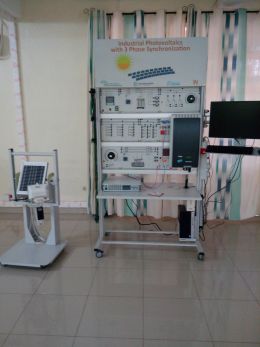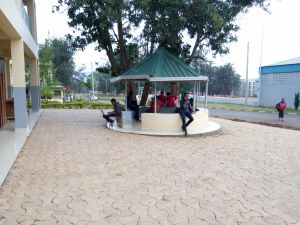Applied science from Rwanda
A centre for prospective doctoral students from all over East AfricaIt is one of the first of its kind: the “African Center of Excellence in Energy for Sustainable Development” (ACEESD) is a transnational centre for engineer and doctoral training that was set up in 2018. The focus at the University of Rwanda is on applied scientific research related directly to real projects.
 THE REGIONAL ENERGY MARKET NEEDS INDIVIDUAL SOLUTIONS
THE REGIONAL ENERGY MARKET NEEDS INDIVIDUAL SOLUTIONS
Energy use in East Africa is growing, not just in Rwanda but also in countries like Tanzania, Uganda and Kenya. In the final analysis, practically the entire region is faced with rapidly growing energy consumption.
However, the local infrastructure is rather specific, which means that, more often than not, specific solutions are called for. From an engineer’s point of view, it’s an exciting market. In many places, stand-alone solutions are the only option. The individual systems must work independently of national grids. That doesn’t make them any less complex though. On the contrary, any well-functioning microgrid is a challenge in itself.
APPLIED SCIENCE DIRECTLY FOR THE REGION
It is precisely at this interface between a challenging infrastructure and the research interests of budding engineers where the World Bank-funded “African Center of Excellence in Energy for Sustainable Development” (ACEESD) comes in. Young power engineers from seven East African countries are studying at the new institute, which is affiliated to the University of Rwanda.
Their shared ambition is to obtain an engineering degree and doctorate that will make them stand out in the international education market. What is truly revolutionary about the ACEESD’s approach is not so much its multinational approach as the research interests of its young scientists. The institute’s work addresses the aforementioned infrastructure challenges in the region. And the target is ambitious. The ACEESD wants to identify stand-alone solutions that can meet local energy needs in the long term.
 POSSIBLE SOLUTIONS ARE SIMULATED IN LUCASNÜLLE’S SMART GRID LABORATORY
POSSIBLE SOLUTIONS ARE SIMULATED IN LUCASNÜLLE’S SMART GRID LABORATORY
In their search for these solutions, the students must above all be able to draw up accurate predictions. Lucas-Nülle’s power engineering laboratories provide them with the tools to do this. The systems from Germany allow them to simulate the role of individual energy producers in the grid on the one hand and to plan complex networks such as smart and microgrids using the SCADA practice software on the other.
This aids the search for stand-alone solutions. Just like a jigsaw puzzle, the energy producers can be arranged and fitted together in a local microgrid to create an overall solution of the right size. The modular design of the systems allows the budding engineers and doctoral students to simulate different scenarios. By using a trial and error approach, they can test which energy system works best in the particular local conditions.